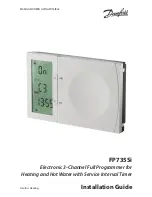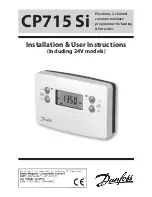
32
| Operation Manual C 2213 | Installation examples
11 Accessories
Article
Part.-No.
PE tubing d 8/12
97124
PVC tubing d 8/12 (only as blow-off line)
97561
PE d tubing 12/16
97176
ammonia bottle k (50 ml)
13514
set accessories (5 m PE tubing, mounting brackets, ammonia)
22412
PVC wall holder W1“ incl. mounting material
28380
PVC wall holder G 5/8 incl. mounting material
29752
PVC wall holder G 3/4 incl. mounting material
28360
PVC wall holder 1.030“-14NGO incl. mounting material
38320
safety blowdown valve incl. mounting material
32843
safety shutoff valve d 8/12
20401009
safety shutoff valve d 12/16
20401010
activated-carbon cartridge incl. mounting material
12032301
Activated-carbon cartridge refill
35057
back stop, tubing d 8/12
20435060
back stop, tubing d 12/16
20435061
back stop, PVC d 16i
20435118
set open end-spanners for exchanging cylinders (SW 32 + 13)
35559
tool kit for maintenance of the vacuum regulator
35280
Tab.: 4:
Accessories
Wall holder
A PVC wall holder is used to receive the chlorinator while cylinder is exchanged and closes the pressure
connection at the same time. Thus the entry of humid air is avoided effectively also during replacement of the
cylinder.
Safety blowdown valve
If the inlet valve of the vacuum chlorinator does not close completely due to impurities, it is possible that an
excessive pressure develops in the vacuum piping system which causes undesired chlorination.
To avoid this, the safety blowdown valve is used. It opens at the lowest excessive pressure and discharges the
piping system. The end of the blowdown pipe is run near the gas sensor. Thus an immediate alarm signaling is
ensured.
Activated-carbon cartridge
In almost any installation incl. vacuum systems, temporary shock pressures may occur, which cause the
extremely sensitive safety blowdown valve to respond briefly so that gas warning device is activated. In order
to make sure that only a "real" dangerous situation is indicated by the gas warning device, an activated-carbon
cartridge is integrated in the blowdown pipe, thus avoiding faulty alarms. Only if larger amounts of chlorine
escape will an alarm be reported.













































